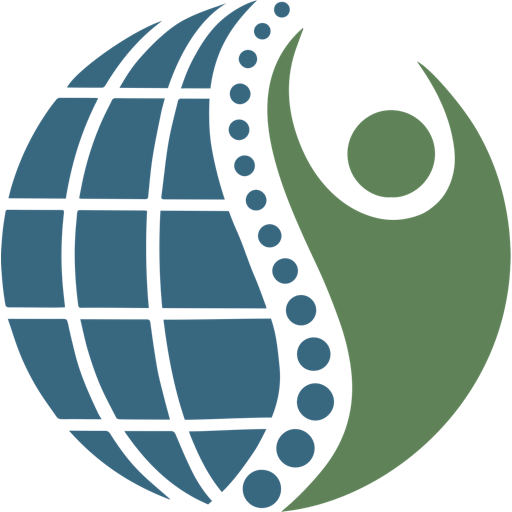Evacuated, but Not Abandoned
Dr. Jennifer Ward, pictured with fellow volunteers and military support vehicles, assisted in the evacuation of First Nation community members in Northern Manitoba, Canada.
Since October 2023, the Cross Lake Nursing Station has served as the site of a World Spine Care Canada clinic with the support of several national funding partners (Health Canada, Canadian Chiropractic Research Foundation, Canadian Chiropractic Association, and Healthcare Excellence Canada). It is a chiropractic service implementation project, in collaboration with the community, providing care to the Pimicikamak People in Manitoba. Since its inception, more than 225 community members have sought care through 1,380 treatment visits.
In May of 2025, an evacuation order was issued to over 7,000 Pimicikamak Peoples due to out-of-control wildfires. For 19 days, people were evacuated to other cities in the Canadian provinces of Manitoba and neighbouring Ontario. Both World Spine Care Canada clinicians offered their skill sets to support the community through this natural disaster.
For community members displaced to Winnipeg, our clinical research team consulted with community members and created an opportunity to receive treatment from Dr. Jordan Myers, a chiropractor who typically flies to Cross Lake to deliver care. Thanks to the complementary electronic medical record from Juvonno, Dr. Myers was able to reach out to all displaced patients. Using the integrated text messaging system, patients were notified that the chiropractic service was now available to them in the Winnipeg Health Science Center, next to the emergency department on the University of Manitoba campus.
Concurrently, a postcard was created for the community’s social media to increase awareness of the service and to provide clinic contact information, location, and transportation availability. For patients displaced to other communities who had their care interrupted, the clinicians were able to provide advice, education about their condition, stretching, strengthening, and exercise recommendations via telehealth appointments.
Dr. Jennifer Ward was prepared to see any Pimicikamak patients displaced from Cross Lake to The Pas or Opaskwayak Cree Nation, but found herself lending her abilities in other ways. Volunteering at the Clearwater Lake Airport, Dr. Ward assisted in receiving community members from Northern Canada. Through smoke-filled skies, First Nations Peoples arrived with small carry-on bags, holding their children’s hands. “It was very intense. Thousands of people had to leave their communities not knowing if their homes were going to be there when they got back. Some communities are still evacuated even after 102 days due to hydroelectric poles being damaged in the fire.” Her clinic treated evacuees and firefighters from all over the north for free to help provide much-needed relief.
Fortunately, after weeks of displacement and uncertainty, the fires were declared contained. The evacuation order was lifted, and the 7,000 people were able to return to Cross Lake after June 16th.
We hope that other communities and people impacted by natural disasters can learn from the experience to pivot, adapt, and meet the healthcare needs of people in the future.
This article originally appeared in the World Federation of Chiropractic Quarterly World Report for October 2025.





